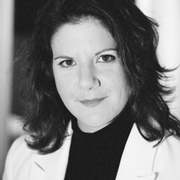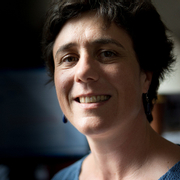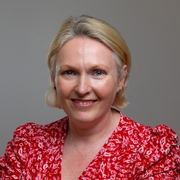- Level Foundation
- Duration 16 hours
- Course by Institut Mines-Télécom
-
Offered by

About
Whether you are a member of the natural or human science community, if you are a PhD student, professor, part of an academic department or international research team, or self-employed and you wish to showcase your work to a wider audience then this is the perfect course for you. You will learn how to promote your work to professional peers, the general public, as well as the media. The free version (open to all enrollments) contains: 30 videos (4 and a half total hours) of high-quality lessons conducted by various experts. Multiple embedded discussions, readings, and reflective tasks (4-5 hours) to further deepen your learning. Several discussion forums where you can network and collaborate with fellow participants. Participants who wish to obtain official Coursera certification for their training are invited to carry out and receive passing grades on three peer-reviewed assignments and two quizzes. In this MOOC, we have been incredibly fortunate to gather a team of experienced professionals from scientific experts, to media specialists, to communication coaches, who frequently appear at conferences and on various face-to-face and online platforms. You will gain key takeaways that you can adapt to your own communication contexts. To further deepen your learning experience, you will collaborate with an international scientific community to reflect on and fine-tune your own skills in pitches, presentations, approach to question and answer sessions, networking, and speaking to the media. Authors' note: While the course is intended for self-study use, it has also been successfully piloted in flipped classroom English as a Medium of Instruction (EMI) training contexts. Watch the Teaser here! https://www.youtube.com/watch?v=_FxZTUg_NtkModules
Welcome to the Course
2
Discussions
- Introduce yourself
- What do you hope to gain from this course?
1
Videos
- Welcome! An introduction from your course leader, Bethany Cagnol
2
Readings
- How to get the most out of this course
- Instructions for using the "Notes" feature
What is your goal?
1
Discussions
- Why do you want to promote your research?
2
Videos
- Introduction to this module
- What is your goal?
What is your message?
1
Discussions
- What is your main message?
1
Videos
- What is your message?
Who is your audience?
1
Discussions
- Who is your audience?
1
Videos
- Who is your audience?
Which platform for which audience?
1
Discussions
- Match the medium with the audience
1
Videos
- Which platform for which audience?
Leave the jargon behind
1
Discussions
- Explaining jargon
1
Videos
- Leave the jargon behind
1
Readings
- Specialized terminology reduces the number of citations of scientific papers
Your pitch
1
Videos
- Your pitch
Peer Review Task 1: Your research pitch
1
Peer Review
- Your Research Pitch (in writing)
Back to the Basics
2
Videos
- Introduction to this module
- Back to the Basics
Language Points for Scientific Presentations
1
Videos
- Language Points for Presentations
Enhance your online communication experience
1
Videos
- Online Presentations
Improve your panel discussions or round table experience
1
Videos
- Panel Discussions
Case study on excellent presentation skills
1
Discussions
- Observations from Dr. Marshall Shepherd's "Maniac" Lecture
1
Videos
- Bethany's introduction of the Case Study on Dr. J. Marshall Shepherd
1
Readings
- Week 3 Case Study Instructions
Week 2 Quiz: Enhance your Scientific Presentations
1
Assignment
- Enhance your Scientific Presentations
Interactive Lesson: Reflecting on tough audience questions
2
Videos
- Introduction to Week 3
- Reflecting on tough audience questions
Interactive Lesson: Reflecting on appropriate responses
1
Videos
- Reflecting on appropriate responses
Debrief on inappropriate responses
1
Videos
- Debrief on inappropriate responses
Interactive Lesson: Observing appropriate responses
1
Videos
- Observing appropriate responses
Debrief on appropriate responses
1
Videos
- Debrief on appropriate responses
Peer Review Task 2: Answering questions
1
Peer Review
- Peer-reviewed Task for Week 3: Mp3 Q&A
Collaborating in other fields and applying for grants
2
Videos
- Introduction to Week 4: Networking
- Spotlight on a mathematician: Collaborating in other fields and applying for grants
Spotlight on a neuroscientist: Reaching out to the general public
1
Videos
- Spotlight on a neuroscientist: Reaching out to the general public
Spotlight on an oncologist: Getting the most out of social media
1
Videos
- Spotlight on an oncologist: Getting the most out of social media
Spotlight on the President of Télécom Paris: Networking in academic and corporate contexts
1
Videos
- Spotlight on the President of Télécom Paris: Networking in academic and corporate contexts
Top Tips for Networking in the Sciences with Bethany Cagnol
1
Assignment
- Quiz for Week 4: Networking in the sciences
1
Discussions
- Self-reflective task: What networking channels do you use?
1
Videos
- Top Tips for Networking in the Sciences
Frédéric Restagno, CNRS research professor of physics, on working with the media
1
Videos
- Frédéric Restagno, CNRS research professor of physics
Cécile Michaut on The Written Press and the Web
1
Discussions
- Analyzing interviews: What types of questions should you expect?
1
Videos
- The written press and the web
Catherine de Coppet on Interviewing for Radio
1
Videos
- Catherine de Coppet on Interviewing for Radio
Audrey Mikaëlian on Interviewing for Television
1
Videos
- Audrey Mikaëlian on Interviewing for Television
Cécile Michaut on Building a Sustainable Relationship with the Media
1
Videos
- Building a sustainable relationship with the media
Peer Review Task 3
1
Peer Review
- Final Assessed Task: Your Video Pitch
Last word from your course leader, Bethany Cagnol
1
Videos
- Last word from your course leader, Bethany Cagnol
Auto Summary
Unlock the potential to effectively promote your scientific research with our comprehensive course designed for members of the natural and human science communities. Aimed at PhD students, professors, academic department members, international research team participants, and self-employed researchers, this course is an essential resource for those looking to share their work with professional peers, the general public, and the media. Led by a diverse team of experts including scientific professionals, media specialists, and communication coaches, this course offers 30 high-quality video lessons totaling 4.5 hours. Complementing the video content are 4-5 hours of embedded discussions, readings, reflective tasks, and several discussion forums to network with fellow learners. For those seeking official Coursera certification, the course includes three peer-reviewed assignments and two quizzes to test your knowledge. Throughout the course, you will develop valuable skills in pitches, presentations, Q&A sessions, networking, and media interactions, all within an international scientific community. Designed primarily for self-study, this course has also proven successful in flipped classroom settings, particularly in English as a Medium of Instruction (EMI) contexts. Whether you opt for the Starter or Professional subscription, this foundational-level course offers flexible learning tailored to your needs. Join us and become proficient in promoting your scientific results to a broader audience. Watch the teaser [here](https://www.youtube.com/watch?v=_FxZTUg_Ntk) and start your journey with Coursera today.

Bethany Cagnol

Cécile Michaut

Sinead Namur


